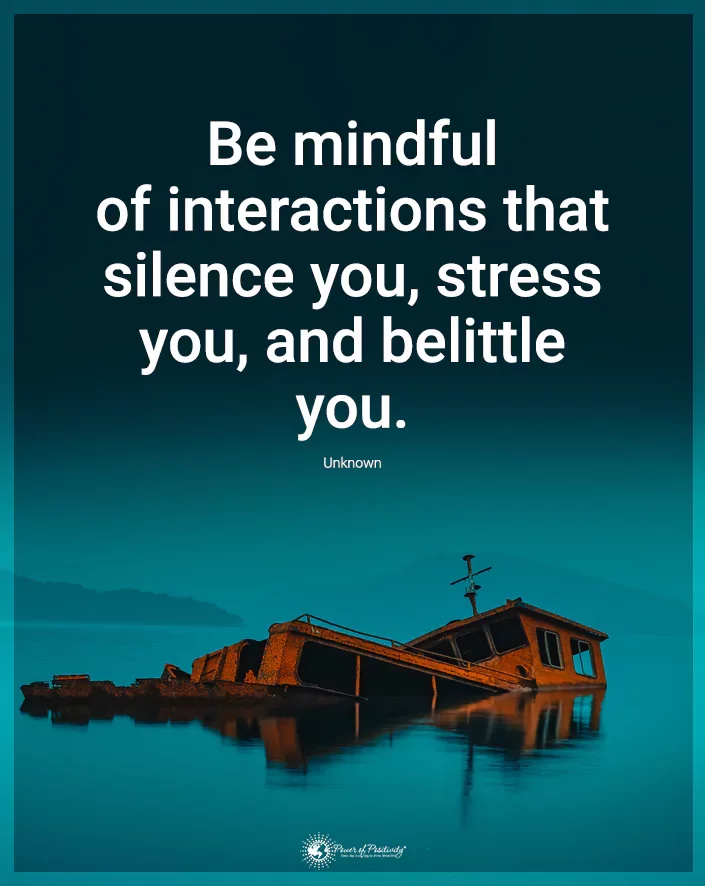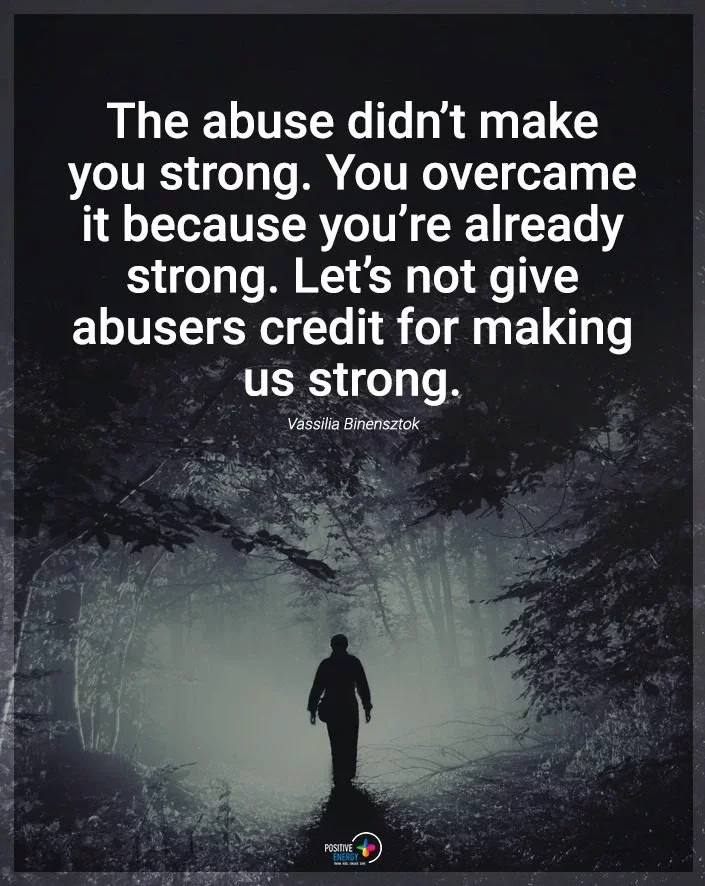These toxic behaviors are the exact opposite of a loving relationship.
In the quest for love and connection, it's vital to discern between what is genuinely affectionate and what is harmful under the guise of love. Often, behaviors romantically depicted in media or woven into societal norms are, in reality, signs of a toxic relationship.
This article will illuminate this crucial topic, exploring fifteen toxic behaviors commonly mistaken for love expressions. By understanding these behaviors, you can foster healthier, more fulfilling relationships and avoid damaging dynamics.
15 Toxic Behaviors Manipulators Try to Disguise as Love (But They're Definitely Not!)

1 - Understanding Over-Possessiveness
When someone shows interest in our life, it feels flattering. But there's a fine line between caring involvement and over-possessiveness. Often mistaken for deep care, the latter is a significant red flag in a relationship. Over-possessiveness manifests as excessive control over a partner's actions, choices, and interactions.
It might start subtly-perhaps as a partner expressing concern over who you spend time with or how you dress. However, it can quickly escalate into a situation where your freedom and independence are severely restricted.
This behavior stems from insecurity and a desire for control, not from love. It's crucial to recognize that love is about respect and trust, not monitoring and controlling someone's every move. In healthy relationships, partners encourage each other's independence and personal growth, understanding that this leads to a stronger, more trusting union.
2 - The Reality of Excessive Jealousy
Jealousy is a natural emotion in relationships. However, it becomes a toxic trait when it crosses the boundary into obsessiveness. Excessive jealousy often arises from deep-seated insecurities, leading to a harmful cycle of mistrust and control. This kind of jealousy isn't just about fearing a partner's interactions with others; it's about perceiving almost every external influence-from friends to career opportunities-as a threat to the relationship.
In contrast, healthy relationship boundaries involve trust and the understanding that both partners are independent. It's about balancing mutual respect with the freedom to pursue personal interests and friendships. Remember, a loving partner trusts you and doesn't require constant reassurance to allay baseless fears.
3 - Constant Criticism and Its Impact
Another toxic behavior often mistaken for love is constant criticism. It's one thing for a partner to offer constructive feedback; it's another for them to point out flaws incessantly and insist on changing who you are. This type of criticism, often cloaked as 'just wanting the best for you,' can erode your self-esteem and make you feel unworthy.
Genuine love involves:
Accepting someone as they are.
Celebrating their strengths.
Offering support through their weaknesses.
It's about building each other up, not tearing each other down. If criticism is more common than compliments in your relationship, it's time to reassess whether this dynamic is truly based on love or a subtle form of control and manipulation.
4 - Emotional Blackmail Campaigns Are Toxic Behaviors
Emotional blackmail is a particularly insidious form of manipulation, often mistaken for passion or intensity in relationships. It occurs when a partner uses your feelings as leverage to control your actions or decisions. It could manifest as threats, guilt-tripping, or playing the victim to coerce you into doing what they want. Phrases like "If you really loved me, you would..." are telltale signs of emotional blackmail.
This behavior is not a display of love but a tactic to manipulate and control. Love is about mutual respect, understanding, and support, not using someone's emotions against them. A healthy relationship is one where both partners feel free to express their needs and make decisions without fear of emotional retaliation.
5 - The Dangers of Gaslighting
Gaslighting is a psychological manipulation tactic where a person is made to doubt their memory, perception, or judgment. It's a subtle yet profoundly harmful form of emotional abuse. It can even leave you questioning your reality. For instance, a partner who constantly dismisses your feelings or experiences by saying you're overreacting or imagining things is gaslighting you. This behavior is not about love; it's about control.
The impact of gaslighting on mental health is severe. It can cause anxiety or depression. It may also lead to a loss of self-esteem. You start to rely on the gas lighter for your sense of reality, which only deepens their control over you. Recognizing this behavior is crucial because understanding is the first step in regaining your confidence and independence. Love should make you feel secure and valued, not doubting your sanity.
6 - Isolation: A Red Flag of Toxic Behaviors
A tactic often seen in toxic relationships is isolation from friends and family. This behavior is framed as a desire to spend more time together, but it's a control tactic. By cutting you off from your support network, the isolator gains more control over your life, making it harder for you to leave the relationship or seek help.
Isolation can start small. For instance, it might seem like a partner making you feel guilty for spending time with others or subtly criticizing your friends and family. Over time, this can escalate to outright demands to cut ties with them. Remember, a loving partner understands the value of your relationships outside of the one you share with them and encourages you to maintain a healthy social life.
7 - The Importance of Respecting Boundaries
In any healthy relationship, respecting boundaries is paramount. Boundaries can range from physical space to emotional needs, and disregarding them is a toxic behavior. When someone repeatedly ignores your boundaries, it clearly shows disrespect. It shows a total lack of consideration for your well-being.
For instance, if you need alone time and your partner continually invades that space, it violates your boundaries. Love is about honoring each other's needs and limits, not pushing them to see how much they can tolerate. Trust and mutual respect can flourish in a relationship where boundaries are respected.
8 - Understanding Love Bombing
Love bombing is an overwhelming display of affection and attention that a partner uses to manipulate. It's a whirlwind of grand gestures, constant communication, and intense involvement in your life. While it might seem flattering at first, love bombing is often a red flag for a controlling and abusive relationship.
The problem with love bombing is that it's not sustainable. Once the bomber feels they have secured your attachment, they may withdraw their affection or display toxic behaviors. This sudden change can leave you confused, vulnerable, and more willing to tolerate abuse. True love grows naturally, where both partners have the space to be themselves and build trust gradually.

9 - Neglect and Indifference Are Toxic Behaviors
Neglect and indifference in a relationship are often rationalized as giving space, but there's a stark difference between healthy independence and neglect. When a partner consistently ignores your emotional or physical needs, it's not an act of love; it's neglect. This behavior can leave you feeling lonely, unloved, and unworthy.
Similarly, indifference to your feelings, interests, or well-being signifies a one-sided relationship. It's important to recognize that being in a relationship means being attentive and responsive to each other's needs. Love is about presence, support, and mutual care, not absence and indifference. If you find yourself in a relationship where you feel more alone than when you were single, it's time to reassess the health of the partnership.
10 - The Issue with Constant Monitoring
Constant monitoring or tracking in a relationship is a far cry from genuine care and concern. It's a form of surveillance that invades your privacy and autonomy. It could be anything from persistently checking your phone, demanding access to your social media accounts, or even using tracking devices. Such behavior stems from a lack of trust and a need for control, not love.
In a healthy relationship, trust means not needing to check up on your partner constantly. It's about believing in their integrity without the requirement for surveillance. Constant monitoring can lead to a toxic environment of suspicion and paranoia, which is detrimental to any relationship. Remember, being in a relationship should enhance your sense of freedom, not diminish it.
11 - Ultimatums Are Toxic Behaviors
Ultimatums and threats are often used to control or manipulate a partner's behavior or decisions. Phrases like "If you don't do this, I'll do that" indicate a power imbalance where one partner tries to control the other. This form of manipulation is not a sign of a healthy relationship; it's a sign of coercion.
Healthy relationships are built on communication, compromise, and mutual respect, not threats and ultimatums. These tactics create an environment of fear and insecurity, which are the opposite of what love stands for. Love should make you feel safe and supported, not scared or pressured.
12 - Physical Intimidation: A Serious Concern
Physical intimidation in any form is a serious concern and a clear indication that a relationship is not based on love but on fear and control.
This behavior can range from aggressive body language, such as punching walls, to actual physical harm. Such behavior is abusive and unacceptable.
It's important to understand that love is not violent or threatening. For your safety, it should never make you feel endangered or scared. If you are in a situation where physical intimidation is present, seeking help and removing yourself from the harmful environment is crucial. Remember, your safety and well-being are paramount.
13 - Financial Control in Relationships
Financial control is a subtle yet impactful form of abuse in a relationship. It involves one partner taking complete control over the other's financial resources, limiting their ability to use, acquire, or access money. This form of control can leave you financially dependent and unable to make decisions independently.
Financial abuse is often overlooked because it doesn't leave visible scars, but its impact on your autonomy and freedom can be profound. In a healthy relationship, partners should have an equal say in financial decisions and access to financial resources. Love is about support and partnership, not about control and dependence. Financial control is a form of power play, not an act of love or care.
14 - The Harm in Invalidating Feelings
Invalidating someone's feelings in a relationship is a subtle yet deeply damaging behavior. It occurs when one partner dismisses or belittles the other's emotions, experiences, or perceptions. Statements like "You're just being too sensitive" or "You're overreacting" are common examples of invalidation. This behavior communicates a lack of respect and empathy, leading to feelings of loneliness and misunderstanding in the relationship.
Validating feelings, on the other hand, is a cornerstone of emotional intimacy and trust. It involves acknowledging and accepting your partner's feelings, whether or not you fully understand or agree with them. Remember that both partners should feel heard and validated in a healthy relationship. The absence of this validation can create an environment of emotional neglect and misunderstanding, which is toxic to any relationship.
15 - Excuses Are Not Justifications
Making excuses for poor behavior is often misconstrued as understanding or empathy in a relationship. It's one thing to be forgiving, but consistently making excuses for a partner's harmful behavior enables and perpetuates the toxicity. Whether it's justifying verbal abuse as "just a bad day" or downplaying betrayal as "they didn't mean it," these excuses minimize serious relationship issues.
Understanding and empathy in a relationship mean addressing problems and working through them together, not brushing them under the rug. Making excuses for toxic behavior doesn't solve anything; it only leads to a cycle of dysfunction. Love involves holding each other accountable, striving for growth, and not excusing harmful actions.

Final Thoughts on Toxic Behaviors That Are the Opposite of Love
In conclusion, understanding and identifying these fifteen toxic behaviors is crucial for maintaining healthy and loving relationships. From over-possessiveness to making excuses for poor behavior, each pattern undermines the foundation of trust, respect, and empathy in a loving relationship. Recognizing these signs is about protecting yourself. But it's also about building relationships based on genuine affection, mutual respect, and healthy boundaries.
It's important to reflect on your relationships and assess whether these toxic behaviors exist. Remember, love should uplift and support you, not leave you feeling diminished or controlled. If you identify with any of these toxic patterns, don't hesitate to seek help. Whether you share your plight with a counselor or trustworthy friend, addressing these issues is crucial for your well-being and happiness. Love is about building each other up, not tearing each other down. Choose to nurture relationships that bring out the best in you and leave behind those that do not.

















Comments